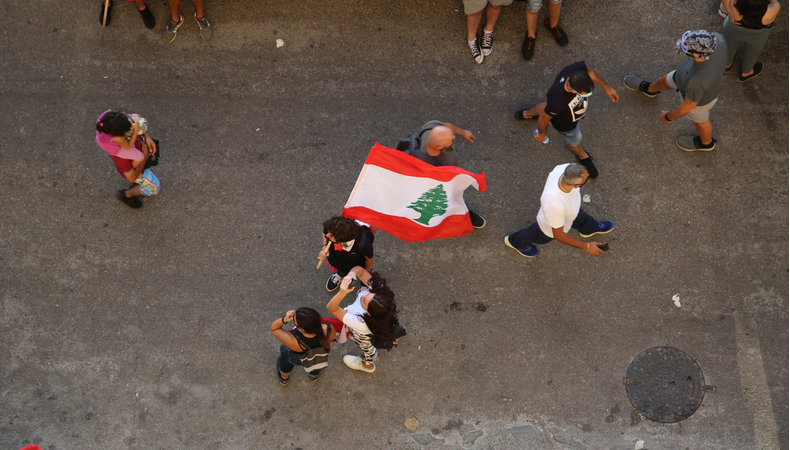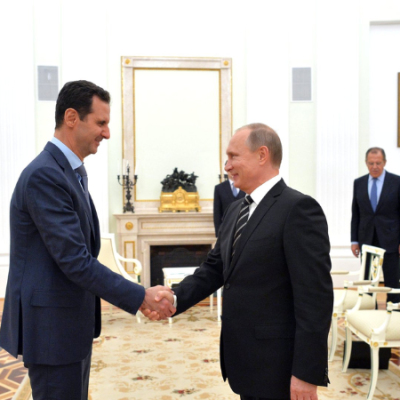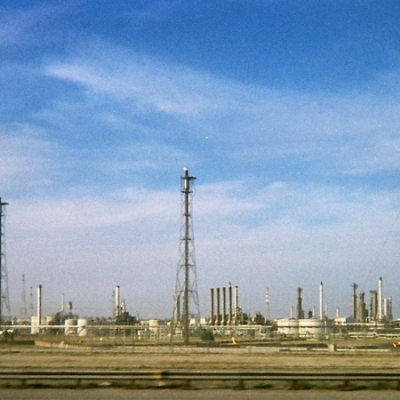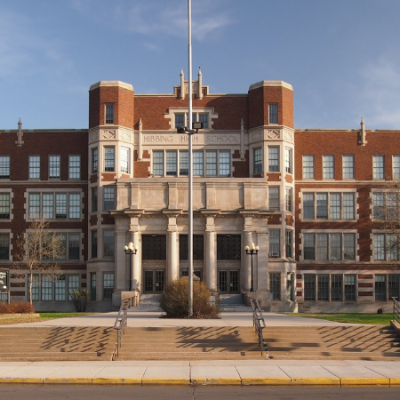One hundred billion dollars blocked in the banks and Lebanon dies

In October 2019, while Lebanon was carrying out an unprecedented mobilization against power, the banks closed their doors. The decision, justified on security grounds, was actually due to the liquidity and solvency crisis of the same institutions.
The sector is virtually on the verge of bankruptcy, although it still refuses to admit it today, and avails itself of the complicity of a central bank that hinders attempts to audit its accounts where it would have accumulated losses of over forty billion dollars.Faced with an ever-worsening economic situation, some Lebanese banks have been forced to close branches or lay off employees to reduce their expenses.
Meanwhile, the population continues to express their anger on the streets of the country.According to economic experts, 100 billion dollars are locked in the banks. For some time now, account holders have no longer been able to make withdrawals from their deposits in foreign currencies or transfer money abroad. Meanwhile, the inertia of the political class devastates the country.
Since March 2, Lebanon, is witnessing a serious economic and financial crisis, as well as a political one, with a new wave of protests, after the Lebanese currency, the lira, reached an all-time low, 10,000 lire compared to the US dollar on the black market. This is the main reason of the fast increase in prices, including for basic needs, which have mounted by about 144%, and for medicines and raw materials, as well as a growing decrease in minimum wages, some of which have been reduced by 60%.
In parallel, there have been delays in the arrival of shipments of fuel, on which Lebanon depends to provide electricity to its population, which has led to prolonged power outages across the country. Some Lebanese areas have been without electricity for more than 12 hours a day, according to local sources.
Sixty-five banking institutions, managing a total of 1045 branches, were forced to implement new measures to reduce their expenses, including the closure of some offices and the dismissal of their employees. As part of a restructuring of the banking sector, the Lebanese Central Bank had previously asked banks to growth capital by 20%, as well as re-inject dollars into bank accounts with correspondent banks abroad, for a value equal to 3% of deposits in foreign currency. In parallel, individual entities were asked to return 15% of the funds transferred overseas, if these exceeded $ 500,000, while bank owners, board members, and executives were asked to return 30 % of what was transferred abroad between 2017 and 2020.
Asaad Khoury, head of the Banking Employees’ Union in Lebanon, said the union has prepared a proposal requiring banks to pay fixed compensation to all dismissed employees, equivalent to 18 months’ salary, plus two months’ salary for every year of work. It was Khoury himself who warned against an increase in layoffs, which could reach 5,000 out of a total of 25,000 employees.All this is part of a continuing crisis, which broke out in 2019, defined as the worst since the civil war of 1975-1990.
Over the past two years, commercial banks have lost deposits of around 49 trillion Lebanese pounds, equivalent to around 22% of their current total assets. Given that government bonds represent the core of banking activities, it is precisely the banks that are considered among the main victims of the government’s inability to pay off their debts, including 1.2 billion Eurobonds, maturing on 9 March 2020.
The first protest movements date back to October 17, 2019, when the Lebanese population took to the streets highlighting the rampant corruption in the country and the mismanagement of state resources, which had caused a waste of public money and the consequent economic and financial crisis. Although the protests had subsided, the decline of the economic and political framework never stopped. To have further worsened the situation, there were, during 2020, the Covid-19 pandemic and the explosion that, on 4 August 2020, hit the port of Beirut, causing extensive material damage, as well as loss of life. human.
On 22 October 2020, the premier in office before the mobilization of October 2019, Saad Hariri, said he was willing to heal an increasingly precarious political situation. On that date, Hariri managed to be appointed prime minister for the fourth time since February 14, 2005, the day of the assassination of his father, Rafiq Hariri. In reality, the prime minister has also made a commitment to Paris and international donors, who have made themselves available to support Lebanon, but only if an independent government is formed capable of implementing reforms and measures of which the country needs.
To date, however, a way out of the ongoing stalemate has not yet been found. In this context, the head of the custodian government, Hassan Diab, in a televised speech broadcast on March 6, warned against a situation of chaos, if the Lebanese political parties fail to overcome the differences between them as soon as possible and to form a new government team.Lebanon is in grave danger and the Lebanese are paying the price.



